From yakuza to pastor: How one Japanese man turned his life around
In 10 years, Mr Tatsuya Shindo climbed to a deputy leadership role in his gang.
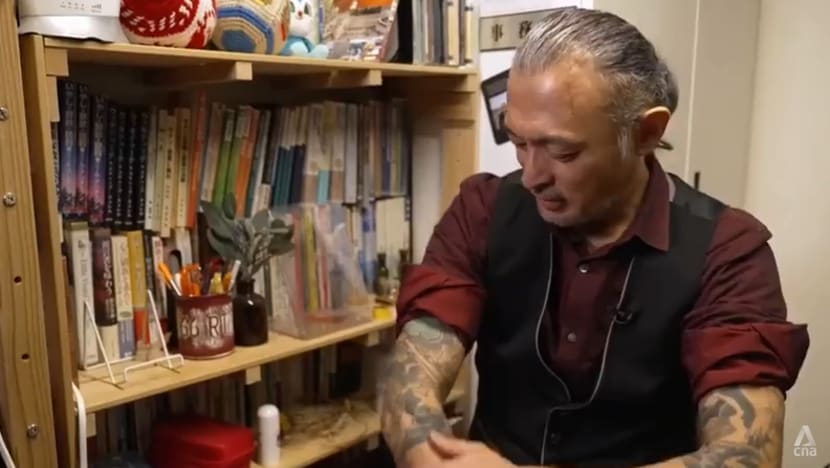
Mr Tatsuya Shindo is now a pastor, and all that remain from his past as a yakuza are his tattoos and a finger cut off at the joint.

This audio is generated by an AI tool.
SAITAMA, Japan: A finger cut off at the joint and skin covered in tattoos are all that remain from Mr Tatsuya Shindo's past as a yakuza.
His present life could not be more different from his drug-addled, illegal history with one of Japan’s notorious organised crime syndicates. Today, the 53-year-old is a pastor.
A juvenile delinquent, he was expelled from high school due to a fight, he told CNA.
He landed in prison for possessing drugs, which paved the path for him to go deeper into the underworld. He developed a reputation and was scouted by a criminal group in Tokyo when he was 18 years old.
"In a society where the powerful prey on the weak, most superior is yakuza. If you are already an outlaw, it's better to become a yakuza, so you become one, because you cannot survive in society otherwise," he said of his decision to join the group.
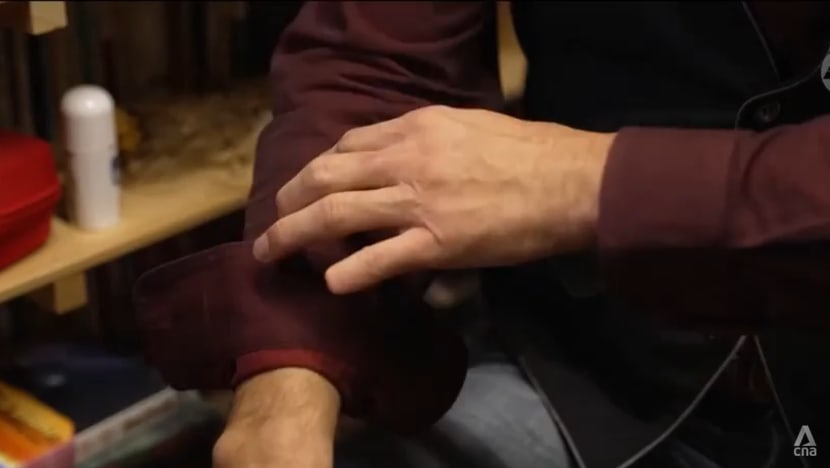
In 10 years, he climbed to a deputy leadership role. He became a drug addict, even overdosing, and was in and out of prison.
His last stint in jail however proved to be a turning point.
Mr Shindo saw other convicts reading the Bible and asked his wife to bring him one.
“I became a convert after reading Ezekiel Chapter 33: 'I have no pleasure in the death of the wicked, but that the wicked turn from his way and live. Turn ye, turn ye from your evil ways, for why will ye die.’,” he said.
“It’s perfect for a yakuza."
FIGURING OUT LIFE AFTER PRISON
Despite his change in heart and mindset, life was hard after his release - his gang abandoned him because of his drug addiction and he had to hide his past. Even when he was able to secure odd jobs, he was not able to hold them down.
But Mr Shindo managed to find his footing, thanks to an understanding boss.
“On a hot summer day, I was sweating. When I was changing, my boss walked in. I thought, 'Oh no, I will be fired again.' But my boss said, ‘No wonder you work so hard’. I felt relieved. I decided to be good to people,” he told CNA.
“Thanks to this boss, I was able to carry on.”
He studied at a seminary in the evenings where he met his mentor, pastor Yuichiro Nakano.
It was in 2005 that he made the unlikely transition from yakuza to pastor. Today, he runs his own church in Saitama - about 30 minutes from the heart of Tokyo - where he was raised.
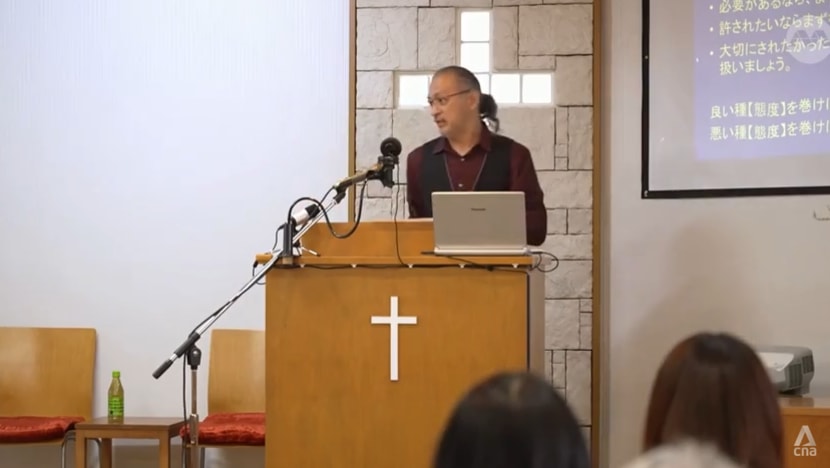
On the day CNA visited him at his church, more than 30 people dropped by to see Mr Shindo and his mentor. Many lie on the periphery of Japanese society - they include former drug addicts, rapists and yakuza.
Mr Shindo said it is now even harder for these former criminals to get a second chance compared with when he was a yakuza, more than 20 years ago.
They cannot sign contracts, get a credit card, rent a place, apply for car loans or open a bank account for five years after their release from prison, he noted.
“Today, if you can't open an account, you can’t work. If your income cannot be remitted, they know why,” he added.
The yakuza-turned-pastor wants to help ex-convicts turn their lives around. He preaches at prisons and also gives sermons at other churches in the hope that more people will accept them into their community.
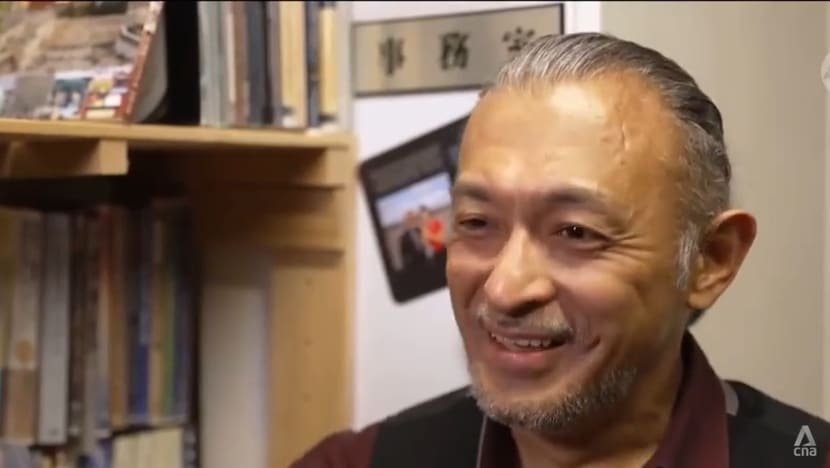
SHIFTING PERCEPTIONS OF YAKUZA
While there are former yakuza who have become famous authors, lawyers and pastors, the Japanese people generally do not easily accept those who were in jail, whether they were yakuza or not.
Many places in Japan like public baths and swimming pools still ban those with tattoos, given that yakuza are heavily tattooed.
This is despite the yakuza’s power and ranks dwindling after decades of crackdowns.
From more than 90,000 members three decades ago, their numbers plummeted to about 22,000 as of the end of 2022, according to the National Police Agency.
Mr Shindo stressed that society should give ex-convicts, including the yakuza, a chance to restart their lives as they have already paid their dues in prison.
“I am extremely happy. A former convict can act so big and speak in front of many people. I can give a hand to other lives. Even if it’s in a small way, I am really happy to be able to do what I am (doing),” he said.
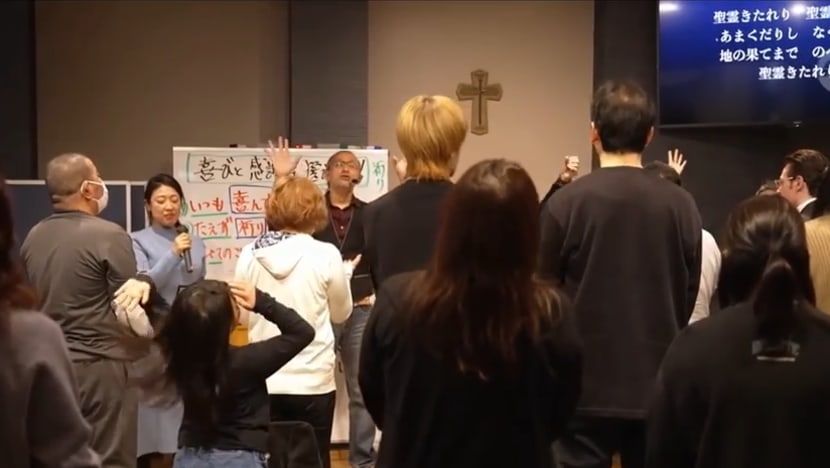
His actions are changing the perception of yakuza among some, such as pastor Takashi Matsumura.
Mr Matsumura said: “I was a little bit scared ... But when I went to his church for the first time and met him, he right away told me, 'Hey, Pastor Matsumura, I am so happy to see you. I have been waiting for this chance.' So my heart melted like ice cream.
“Since then, I’ve been good friends with him.”
While Mr Shindo might have found a way back into society, more needs to be done to help ex-convicts, said University of Oxford criminologist Martina Baradel.
Dr Baradel, a Marie Sklodowska-Curie global fellow whose primary research interest is the yakuza, added that getting the Japanese to shift their mindsets about the yakuza could prove a challenge.
“I have no answer as to how it would be possible, but certainly it is necessary,” she told CNA’s East Asia Tonight.
“It is very difficult to be reintegrated if you had been in prison, let alone if you're a yakuza. So a lot of private groups like Mr Shindo’s group, a lot of religious groups, even groups that are not related with religion like charities - they do offer support, but it is always private initiatives.”
“So I think there is the need for the state to intervene a little bit more hands-on to prevent people from rejoining, if not the yakuza, other forms of crime,” Dr Baradel added.

















